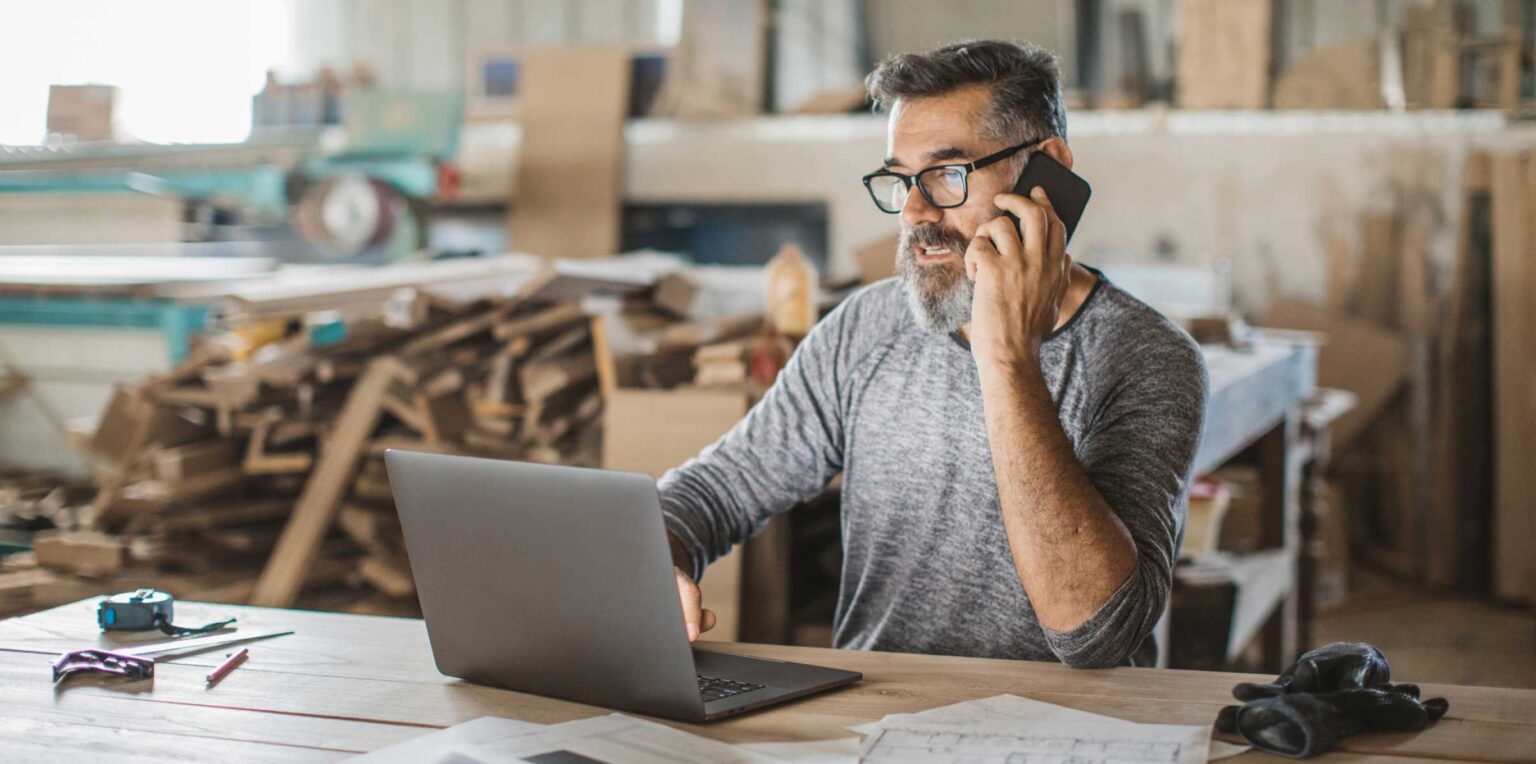Many small business owners have had to work from home this year and, as everyone's learning, the key to making this work is separating your work and personal life.
While many businesses have been forced to close the doors of their physical stores, fortunately business doesn’t have to come to a standstill as a result.
The digital age means it’s possible to fire up your laptop and work from just about anywhere. But that convenience doesn’t mean working from home is without challenges.
“Working from home can be a significant source of stress for people,” says Dr Rebecca Jackson, a Canberra-based psychologist. “The freedom and flexibility to work when and how you want can feel liberating at first, but it can also lapse into messy routines. When the novelty wears off, people have to balance a lot more than they initially anticipated.”
Here’s how these business owners are making it work.
Recreate your commute time
Anton Guinea runs his leadership coaching business The Guinea Group from his home in Gladstone, Queensland. When he shifted to working from home, he says, he needed a clear differentiation between where he supports his family and where he supports his clients.
He does this by creating the ‘third space’ – that is, the moments in between tasks. For many people that used to be their commute, a time where they could completely shut off before and after work.
But the commute from the bedroom to the study barely allows enough time to come to terms with being awake let alone getting lost in a good podcast, so we have to carve out time, says Guinea. He does that through exercise.
Ineke McMahon, co-founder of P2P Learning and Development Academy in Brisbane also creates her own third space. She uses what was her commute time to play with her kids, read or do an online course.
“It’s important to stay off your phone during this time, particularly at the moment as it can be overwhelming and anxiety-inducing – that’s the stuff you need to be clearing from your mind,” she says.
Create boundaries
McMahon has learned the importance of getting into “work mode” even if she’s not leaving the house.
“I don’t feel like I’m in work mode when I’m in my pyjamas. That routine of having a shower and getting ready for work really does help to mentally prepare for a day of work at home,” she says.
As well as setting boundaries for your physical workspace, Jackson suggests setting boundaries around how you’ll operate.
“Get comfortable saying ‘no’ and setting boundaries, whether that’s with work or socially,” says Jackson.
“When you’re at home, let people know when you are and aren’t free. Put out-of-office alerts on or respond to emails within designated times. Make it clear what your office hours are.”
Create the right workspace
McMahon adds that it’s important to create the right working environment.
“If you’re working from a spare bedroom, a separate office or even your own bedroom, it’s essential to make sure your space is clutter-free so you can focus,” she says.
“I don’t recommend working from your bed as this needs to be kept separate for your sleep. Your brain will start associating your bed with work.”
Also, think about the resources such as your internet, she adds.
“Typically, home internet isn’t as good as what you would get in [your workplace]. When I first started working from home, one of the first things I did was up my internet package. If someone else is watching Netflix, you don’t want to be frustrated by your browser being super slow.”
Practice self-care
You wouldn’t let one of your employees go the whole day without stopping for a break, so why would you let yourself do it? When working from home, you can go the whole day without seeing anyone else, so you have to learn how to become an advocate for your own mental health by practicing self-care.
“Eating meals at regular times, taking stretch and exercise breaks, and getting out in the fresh air and natural light for 20 minutes each day are all ways to reduce the stress working from home can bring,” Jackson says.
Nathan Schokker – owner of Brisbane-based commercial concierge service Talio – leans into working from home by making the most of his kitchen.
“When you stop working and cook yourself a meal and sit down and enjoy it, it can reset your day. It gives you an anchor to centre yourself in the middle of a hectic day. It keeps motivation and productiveness charging on.”
Proactively avoid loneliness
As a self-proclaimed extrovert, McMahon says working from home can get quite lonely.
“When I used to work full-time in an office, having people stop at my desk for a chat was a massive energy boost. Now, taking breaks to call a friend is important,” she says.
“Make sure you check in with your friends and your colleagues regularly. Studies showed that after the SARS quarantine, people showed signs of psychological distress [due to experiencing] a sense of isolation.
“So, those quick ‘Hey, how are you going?’ calls can go a long way.”
If you, or someone you know, is struggling with their mental health right now, you can visit the Heads Up website which includes specific resources to help small business owners. For more immediate support, you can call Lifeline on 13 11 14.








